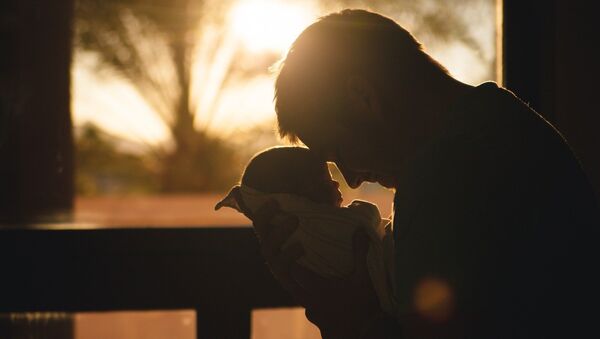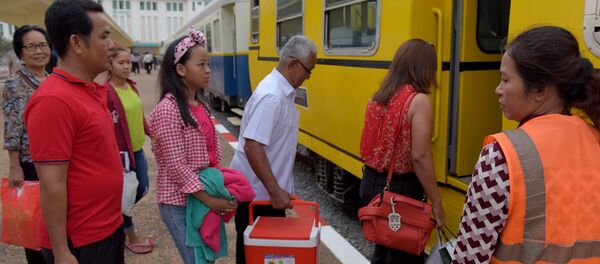Surrogate motherhood is banned in a number of countries, but poor regulation in Southeast Asian countries, along with porous borders and large vulnerable populations of poor working women, have created opportunities for the practice to continue despite official bans. When the payoff is several times one's annual salary, the risk can often seem worth the potential reward.
China's One-Child Policy
The driving force behind commercial surrogacy — when a woman is paid to bear a child that becomes the buyer's upon birth — has by and large been the ending of China's one-child policy in 2016. Beginning in 1979, Beijing enforced a strict allowance of only one child per family in an effort to calm the burgeoning birth rate. By 2016, Beijing's methods had been an unqualified success, reducing the country's fertility rate from about six births per woman in the 1960s to 1.5 by the 2000s, according to CNN. As a consequence, the number of Chinese citizens over the age of 65 tripled.
In 2016, the Chinese government backed off the one-child policy, permitting 90 million women to have a second child. However, childbirths haven't increased at the rate expected by Chinese demographic planners, with only 17.9 million babies born in 2016, 1.3 million fewer than expected, according to the Guardian. Births in 2017 sat at only 17.2 million, well below the forecast 20 million.
As a consequence, Beijing is now considering reducing restrictions even further. In August, CNN reported that a draft reform to the Chinese Civil Code would "no longer retain the relevant content of family planning," according to a statement by the National People's Congress. The revised code won't be completed until 2020.
On the other side of the coin, however, is the aging population of women whose best mothering years fell during the period between 1979 and 2016. It's this group, AFP reports, that's driving the hunger for child surrogacy in Southeast Asia, where the practice is significantly less regulated than in China, where the practice is banned outright.
Vulnerable Working Women
In Cambodia, couples are willing to pay a surrogacy agency between $40,000 to $100,000 to have a child, although the surrogate mother will perhaps only get $10,000 to $15,000 of that.
In a country where the annual household income per capita is only $1,228, according to CEIC data, that kind of money can make an enormous difference in quality of life. One surrogate mother told AFP she had over $4,000 worth of debt, and her garment factory job paid just $153 a month.
Chou Bun Eng, permanent vice chair of the National Committee for Counter Trafficking, told AFP that factory workers are especially vulnerable and that recruiters specifically target them.
"These women are victims of unethical agents and if illiterate, are unlikely to even understand the ban in place in Cambodia," Sam Everingham, director of Australian non-profit Families Through Surrogacy, told AFP. Others experts in the country similarly noted that the law is extremely unclear and that few vulnerable women are familiar with it, including how it bans surrogacy.
Outrage in Thailand
Phnom Penh outlawed the practice in October 2016 following a regional tumult that began in Thailand. A bitter fight ensued between Pattaramon Chanbua, a Thai surrogate mother, and the Farnells, an Australian couple that paid Chanbua to bear their child. However, Chanbua bore twins, and the Farnells only took one of the children home with them, leaving the other — born with trisomy-21, or Down Syndrome — in Thailand with Chanbua. She subsequently sued the Farnells for the return of her other child.
However, an Australian court found in April 2016 that the Farnells had not abandoned the child and declined to return the other child Chanbua had borne to her, instead faulting Chanbua, saying she had "fallen in love with the twins she was carrying and had decided she was going to keep the boy."
Chief Judge Stephen Thackray also said the case "should also draw attention to the fact that surrogate mothers are not baby-growing machines, or 'gestational carriers,'" the Australian Broadcasting Corporation reported at the time. "They are flesh and blood women who can develop bonds with their unborn children."
The Ban and Its Discontents
The furor caused Bangkok to ban the practice, and Cambodia quickly followed suit, afraid the industry would simply shift there. But despite the ban, that's just what happened.
Mariam Kukunashvili, who ran a surrogacy agency in Cambodia prior to the ban, told AFP that "banning allows [the] industry to run under the table," noting there are still over 100 agencies from different Asian countries operating in Cambodia.
Bun Eng told the Phnom Penh Post in January that in the absence of an official law to regulate the surrogacy industry, participants could be prosecuted under human trafficking laws.
"The guidelines ban new cases of surrogacy [and perpetrators] will face legal action under the criminal code," Bun Eng said. "As the woman who gives birth to the baby, she's the mother. And if she gives up [her child], she's violating the law of a mother's responsibility, and if she's involved in selling her own infant to others, she will be punished."
According to the paper, the law stipulates that "a person who sells, buys or exchanges another person shall be punished with imprisonment for two to five years," noting that the penalty could rise to 15 years if the person is "sold" for the purpose of adoption.
"Those women who are pregnant are not guilty, but if they are pregnant and give up their right to motherhood, then she's guilty," Bun Eng said.
Everingham told AFP that women able to carry babies "without detection" are typically moved to either China or Thailand to give birth, where hospital staff can be bribed to issue birth certificates with the intended mother's name on them.
A Flimsy Alternative
However, Bun Eng also noted that "we have not arrested any surrogate women who were after the deadline, and we keep looking for new cases."
However, raids on centers for the underground industry soon produced dozens of surrogate mothers. A June raid on two flats in the capital found 32 surrogate mothers being cared for. In early December, however, Cambodian police announced they would release the women on bail instead of charging them with human trafficking, on the condition that they raised the children themselves, the South China Morning Post reported.
Ros Sopheap, executive director at Gender and Development for Cambodia, told the Post that while she disagrees with "this surrogacy business… they really have no choice. . . They agree to be surrogate mothers because they are poor."
"If you punish the surrogate mothers, it is like victimizing them twice," Sopheap said. "To punish the powerless, the poorest of the poor, is not the right way."








